Opera is resurrecting Opera Neon, a browser concept first introduced in 2017, and equipping it with the latest tech trend: agentic AI—an assistant you can assign tasks to, which it will carry out autonomously.
Opera Neon will work like a normal browser. Opera, however, is integrating local AI that you can chat with privately and ask to do tasks and combining it with an interface to a remote server that will serve as a workspace of sorts for Opera Neon’s AI creation tools. Most browsers are free; the twist here is that Opera Neon will require a paid subscription of an unknown amount, and potential users will be subject to a waitlist.
Opera has a history of experimenting with innovative concepts—it was an early proponent of VPNs, for example. The original 2017 launch of Opera Neon reimagined the browser with visual icons instead of text bookmarks and vertical tabs that bubbled up with frequent use. It was too radical to catch on, though that was never really the goal. Ironically, its revival comes just days after The Browser Company of New York shelved its Arc browser—with similar vertical tabs—in favor of the new Dio agentic browser, now in alpha testing.
Opera believes that Opera Neon will be a “cloud computer” and that it will operate more effectively based upon what it knows about you and your preferences. Whether that ends up being true or not, there are three concepts that Opera is designing Neon around: a local chatbot, the agentic “browser operator” it showed recently, and the “cloud computer,” which sounds like a remote LLM that’s been tuned for coding. It’s likely that owning and operating this remote service is why you’ll have to pay for Opera Neon.
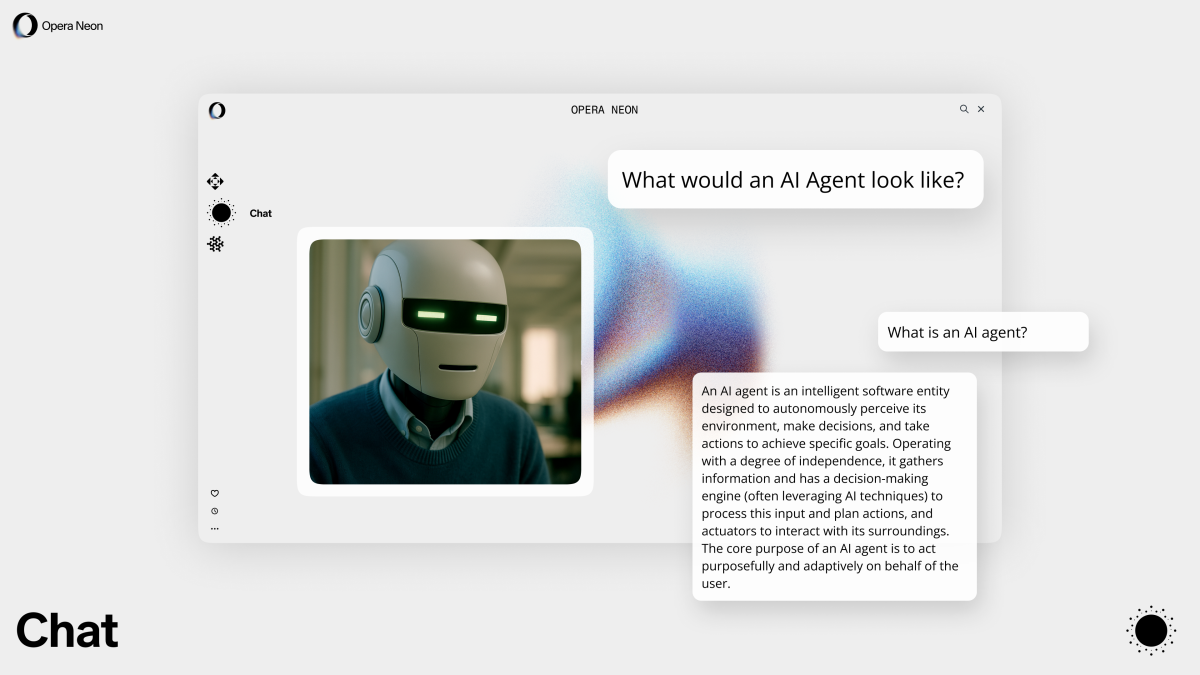
Opera
The ability to chat with a browser isn’t really new, as everything from Microsoft Edge (and soon, Google Chrome) to Brave has integrated AI into the browser for tasks like summarizing web pages. Opera does say that it will be able to analyze the web page via the DOM tree and layout data, rather than “reading” the web page via OCR, like Microsoft’s Copilot Vision does. All of the information Opera Neon’s chatbot sees will remain on your PC, Opera says.
It’s the agentic technology that will make or break Opera Neon. Opera’s earlier demonstration of shopping agents was effective in concept, but how quickly a human user will accept its decisions and learn to trust it is unknown and that’s assuming it works. Opera Neon’s ability to “make” things via its hosted cloud computer is another unknown as well.
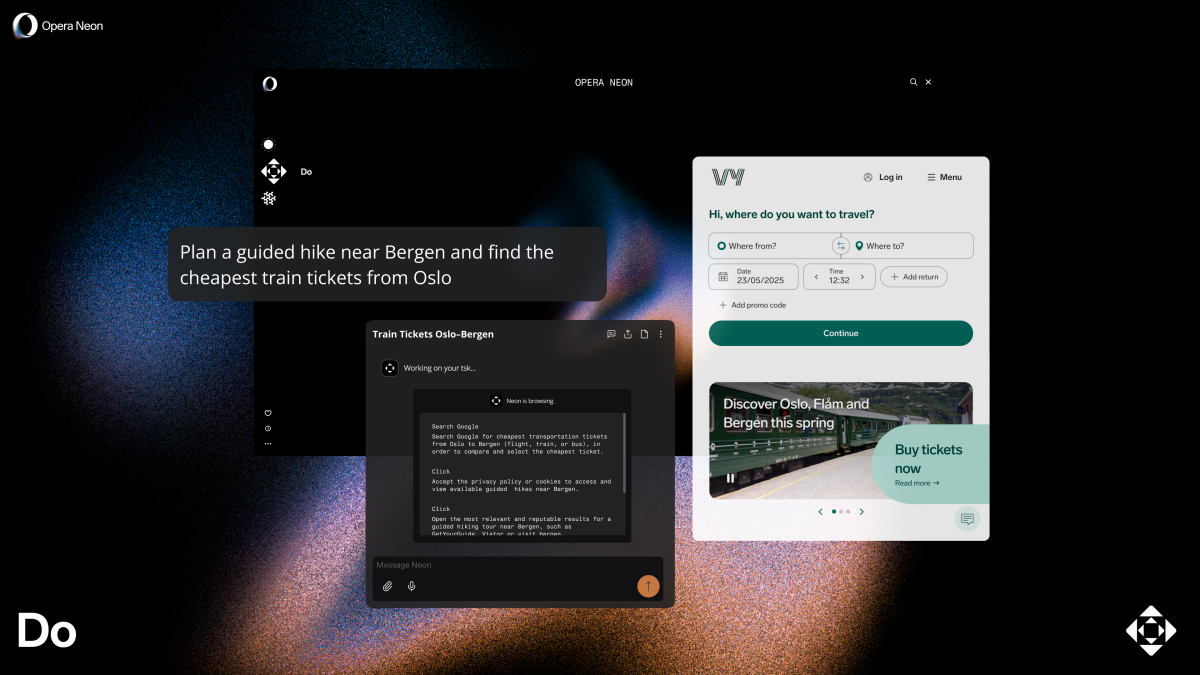
Opera
“Once the tasks have been defined, it employs AI agents contained in a virtual machine on our European-hosted servers to make your idea into a tangible (digital) result,” Opera says of this cloud computer: “Think of it as an orchestra conductor that understands the whole piece of music – your needs and wishes – and points to the different members of the orchestra to execute their parts – task division and execution.”
Opera Neon will “happily install Python libraries and JavaScript frameworks to get there” and self-correct in case of errors.
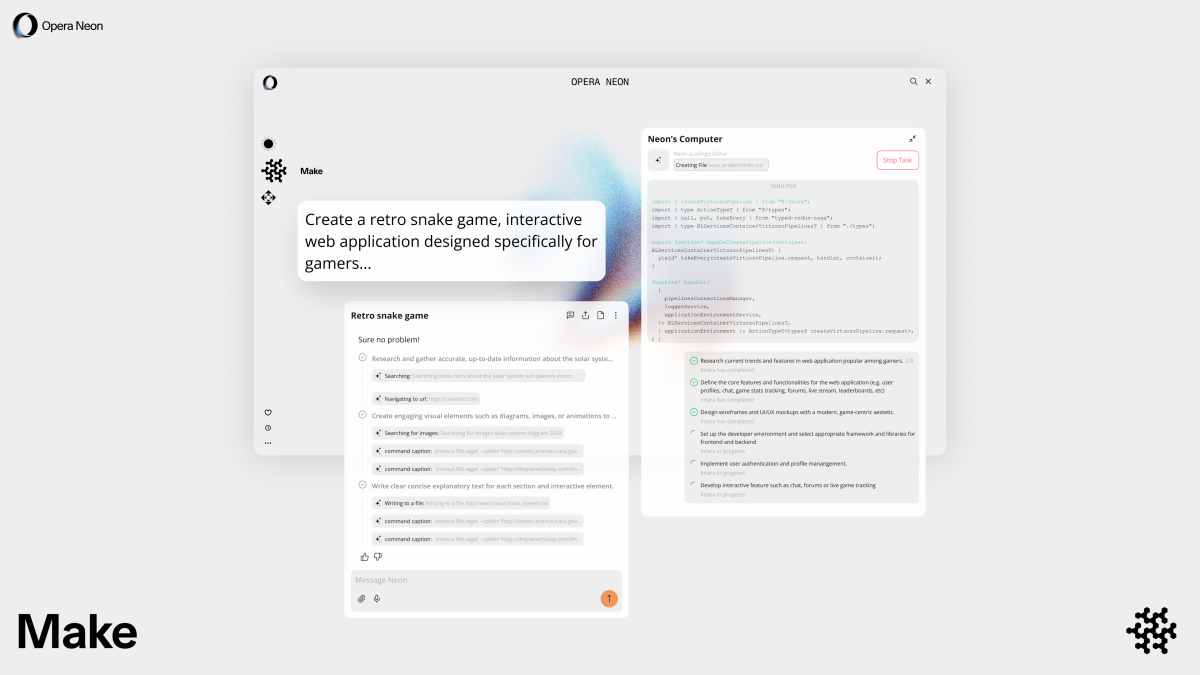
Opera
That all sounds good, but as so many people are willing to point out, AI companies not only haven’t always delivered on their promises, they’ve made some ugly mistakes. Even if you are willing to accept that risk, you must also have a need for the capabilities that Opera Neon offers. Will you be willing to pay whatever Opera is charging so that you can create your own versions of, say, Battleship, with anime characters? Or code an app to help pick out gifts for your nephew’s birthday well in advance?
As with so many things, we’ll have to wait and see.
Login to add comment
Other posts in this group
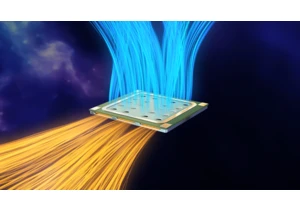
SSDs behave like any other silicon component in your PC: The faster t

Handheld gaming PCs are awesome. Handheld gaming PCs running Windows

The Trump administration’s unprecedented and unpredictable import tax
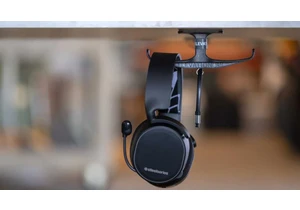

Back during Twitter’s golden days, lots of power users relied on the
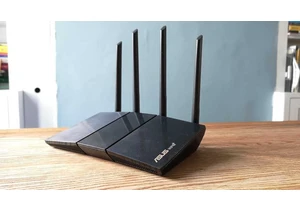
The network equipment that you connect your computer to is, of course
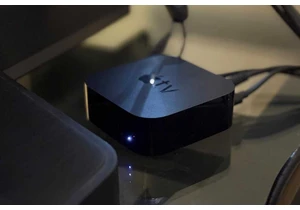
For coming up on four years, my trusty Apple TV 4K has been tucked aw
